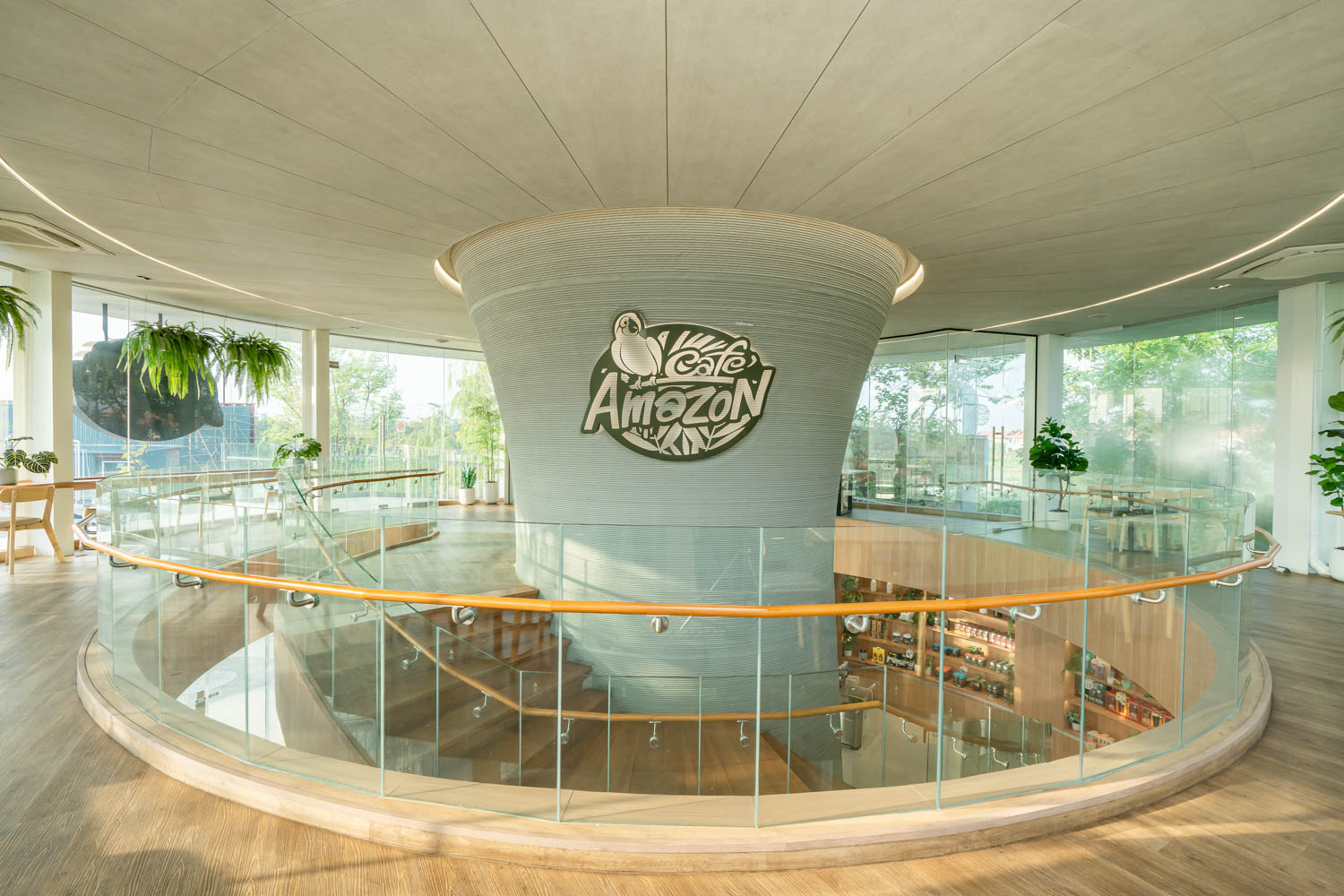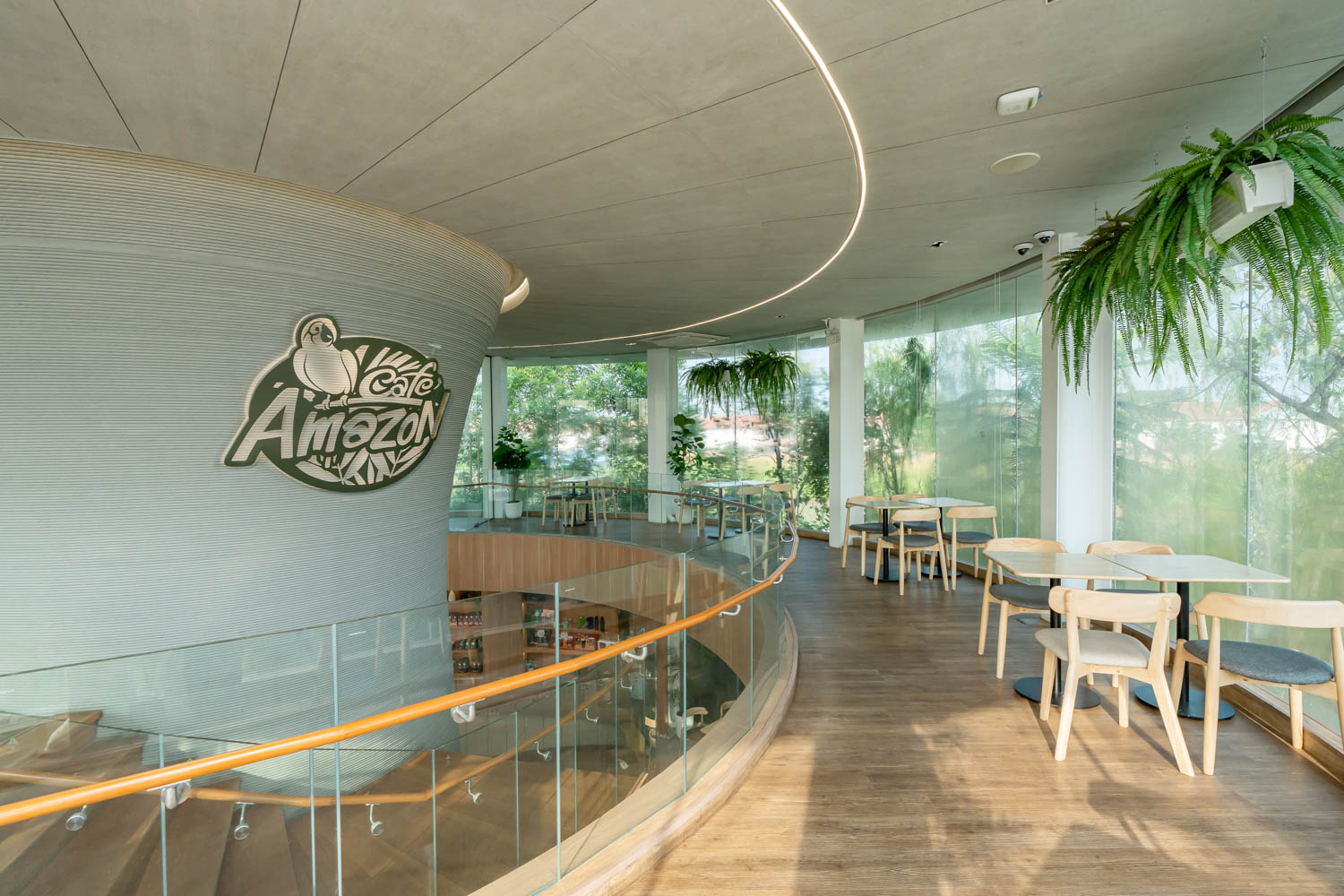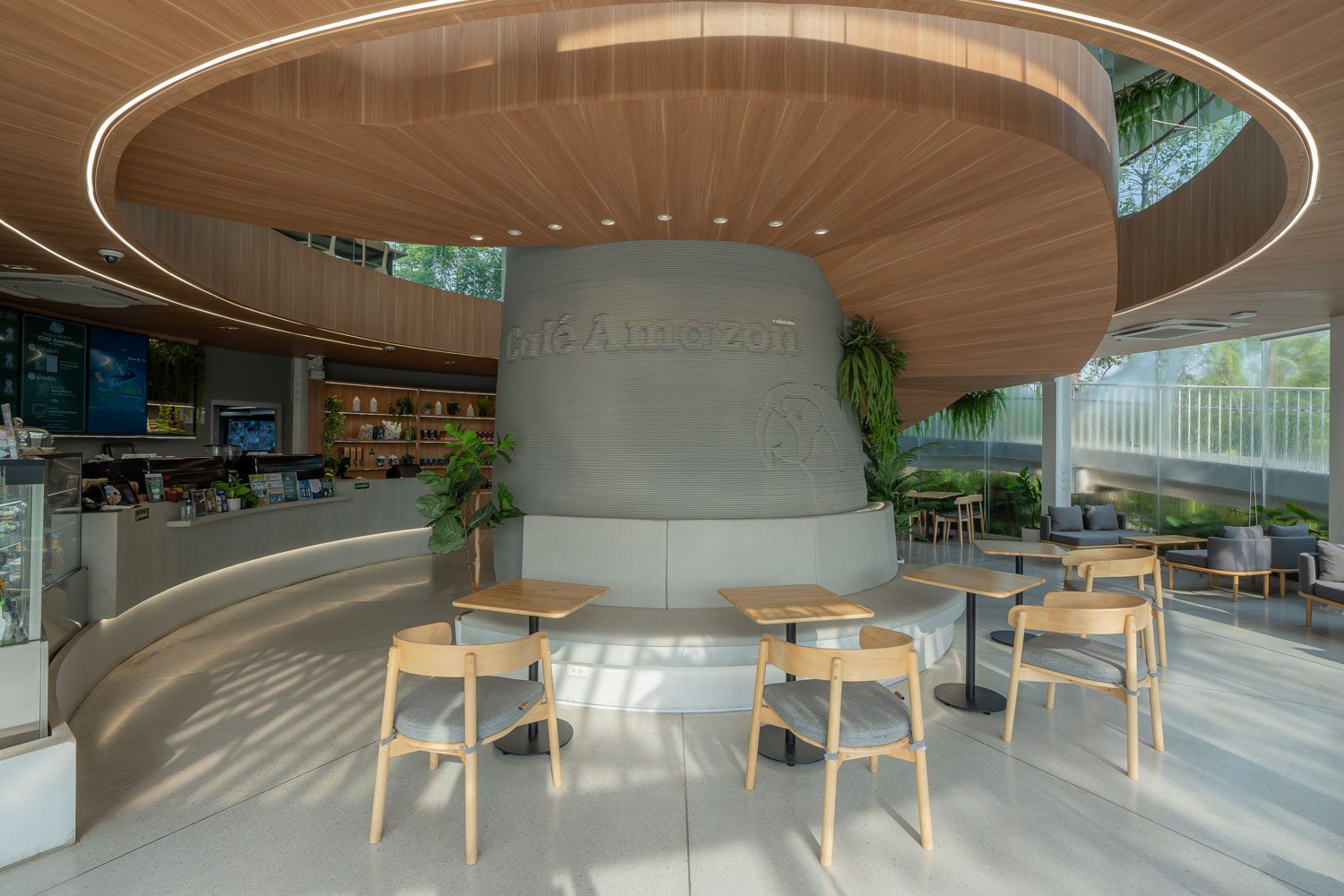EXPLORING CONSTRUCTION TECHNIQUES UTILIZED BY CAFÉ AMAZON FROM MODULAR SYSTEMS, 3D CONCRETE PRINTING, AND THE ENVIRONMENTALLY-FRIENDLY STRATEGY OF CIRCULAR ECONOMY
TEXT: PRATCHAYAPOL LERTWICHA
PHOTO COURTESY OF CAFÉ AMAZON
(For Thai, press here)
From its strong brand identity and distinguished taste of beverages to the lush, green atmosphere of all the physical stores, Café Amazon is continuously learning and exploring new possibilities to expand its brand with the aim of increasing customer access by opening more branches in different locations. Various approaches and methods, such as the modular system, have been implemented to facilitate faster expansion. 3D concrete printing method has also been utilized, which not only results in visually distinctive spaces and architectural forms but also aligns with the circular economy approach and the maximization of resource efficiency. Initiating the design process with the use of these new methods demonstrates the brand’s commitment to design, extending beyond the aspect of architecture to include how various commercial activities and services are designed and carried out.
Modular System
After an extensive analysis of hundreds, if not thousands, of the designs of the brand’s existing branches, the design team of Café Amazon discovered a significant amount of repetition in the components and styles used. This repetition was observed in various elements, including the steel truss, walls, glass, and mirrors. The discovery prompted the design team to conduct experiments on a modular system. By assembling the prefabricated parts, the construction of the building could be completed more quickly. This shorter construction period enables the café to open its doors sooner, allowing the brand to generate income, earn profit, and recoup the investment costs at a faster pace.
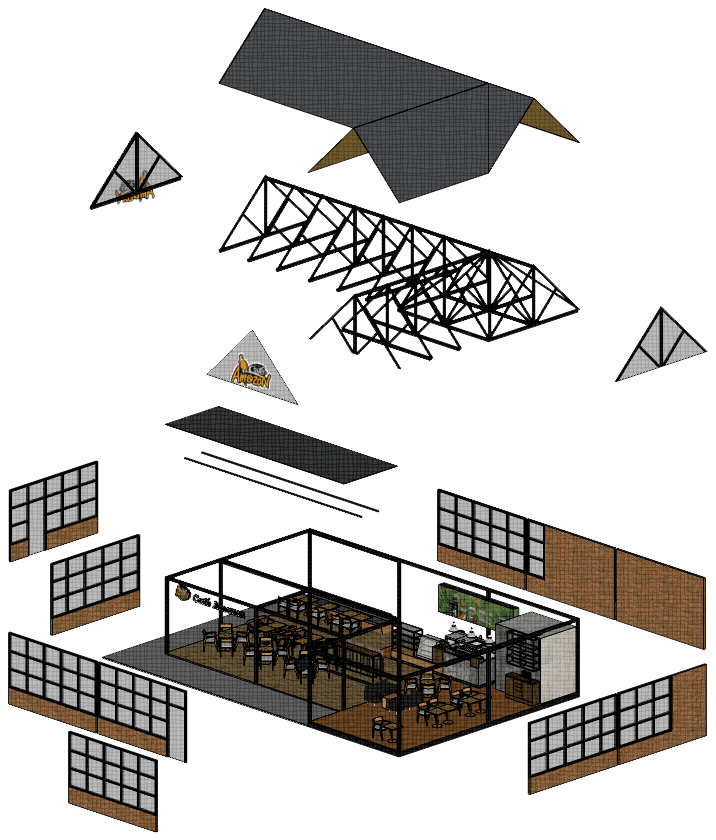
The ‘Glass House’ module, which is one of the most popular designs, is the result of the brand’s experimentation with a modular system and is available in four different sizes: S, M, L, and XL.
The framework, partitions, and roof structure components are prefabricated at the factory. On-site, the construction team must initially prepare the foundation before transporting and assembling all the parts to build the structure. This process, along with the interior decoration phase will be completed within a relatively short construction period of 12–15 days. The developed modular system not only reduces costs and shortens the construction period, but also significantly decreases the amount of construction waste.
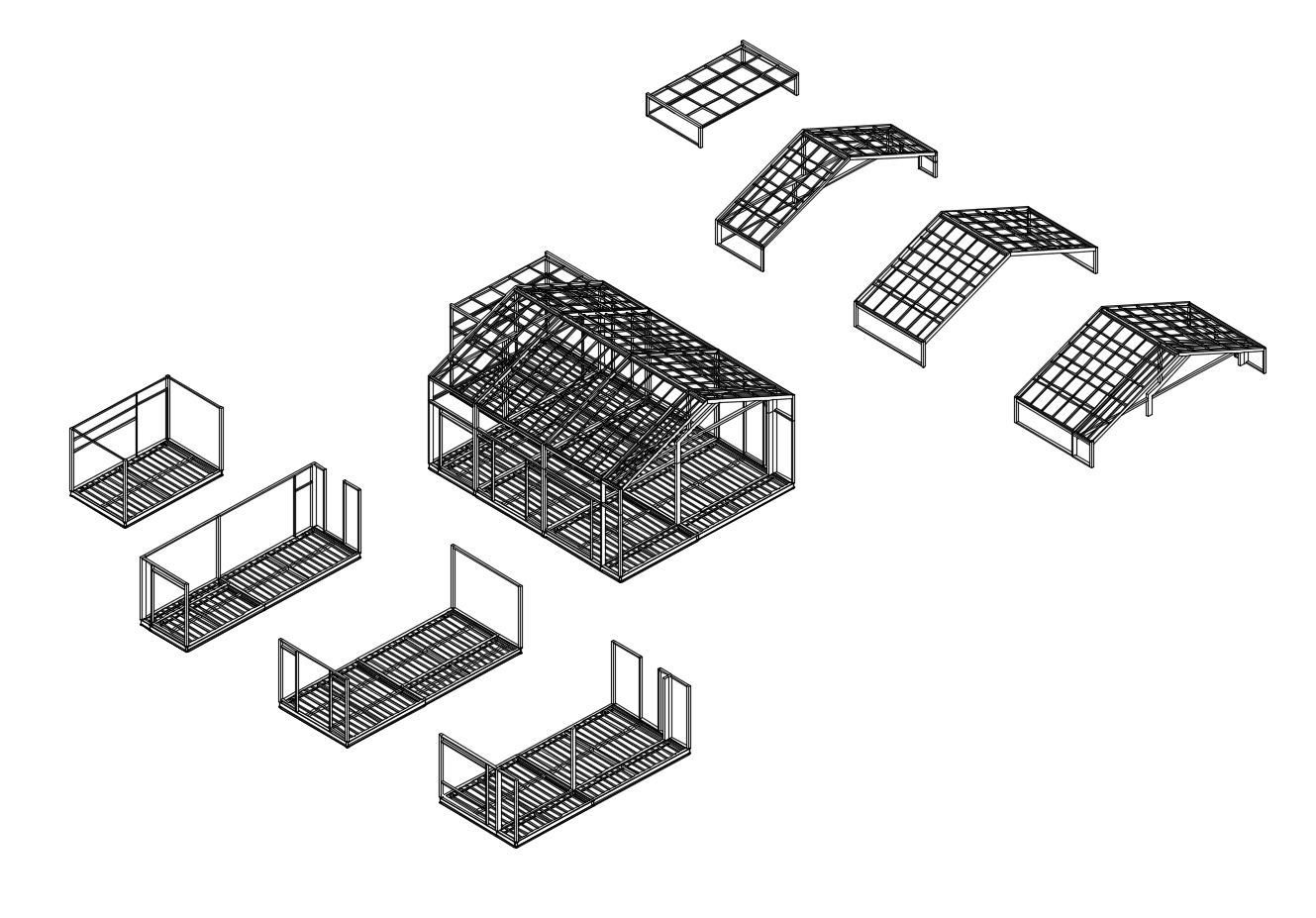
3D Concrete Printing
3D Concrete Printing is a technological advancement in architectural building in which a machine is programmed to print numerous layers of concrete into the required shape. What makes 3D concrete printing unique is how it simplifies the fabrication of curved, free-form building parts. The approach also provides greater precision in shorter durations while providing higher efficiency and eliminating construction waste materials.
Café Amazon used 3D concrete printing for the first time with the CPAC branch, which is located across King Mongkut’s University of Technology North Bangkok. This Café Amazon location is the product of a collaboration between the brand and CPAC, a subsidiary of SCG Cement, the country’s foremost innovator and maker of ready-mix concrete and concrete products.
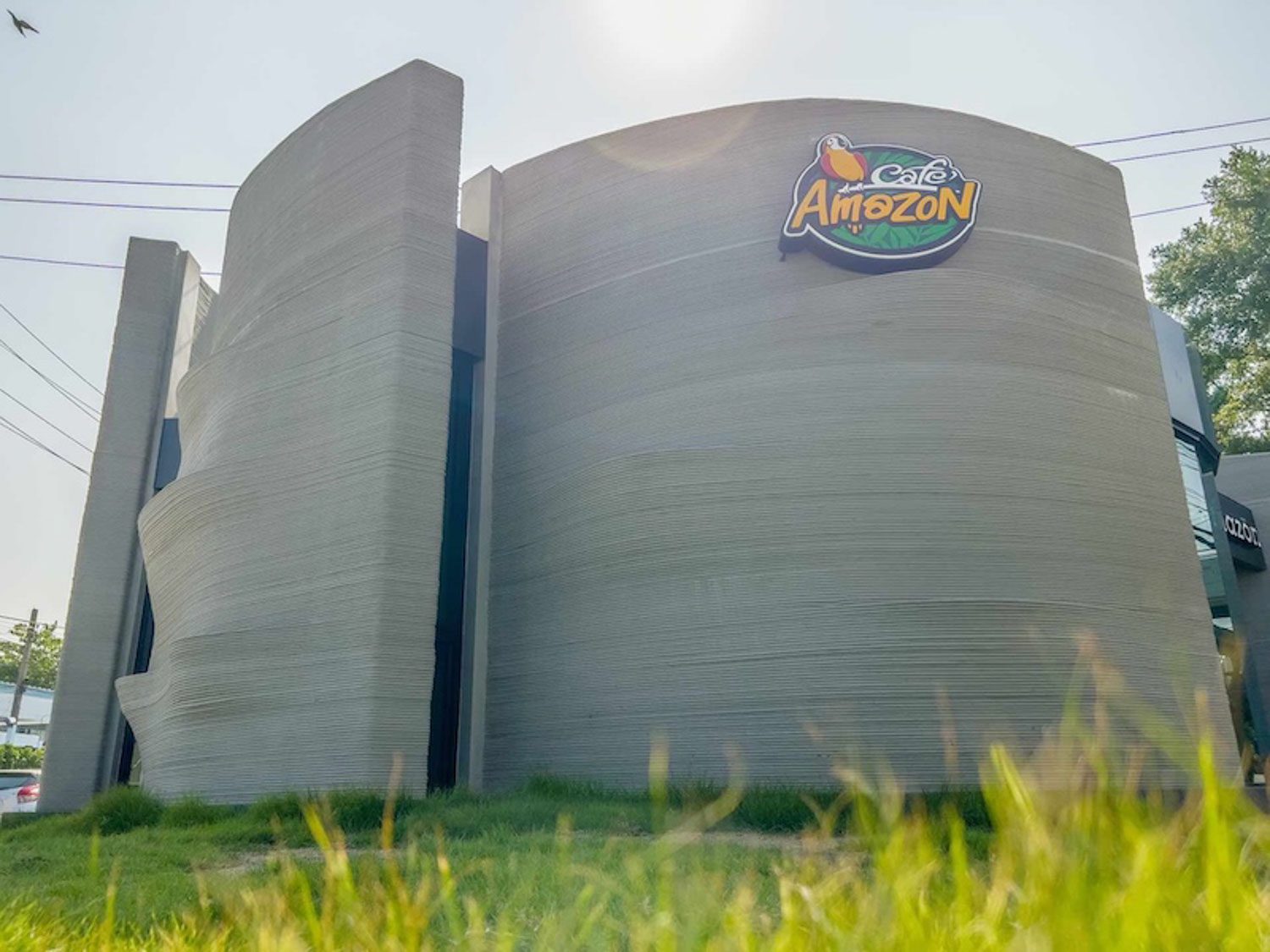
Café Amazon CPAC
Despite being a small-scale coffee shop, the Café Amazon CPAC branch stands out with its unique, curved walls and some areas contain a protuberant layer designed to be the regions where plants are grown, creating a lush and refreshing ambiance. The recessed parts of the interior houses curved benches that coincide with the plane of the outer wall.
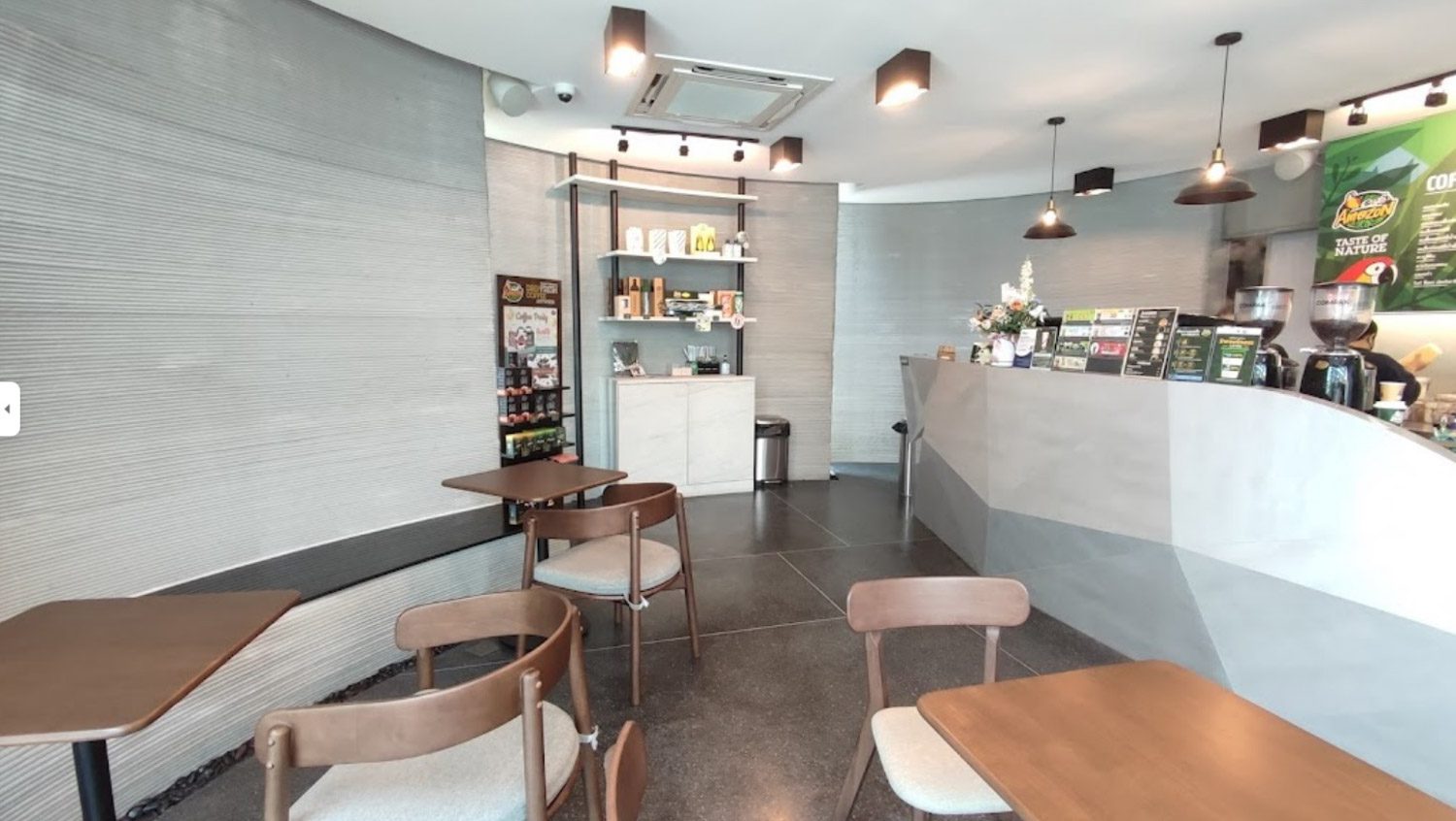
Café Amazon CPAC
The PTT Station Phutthamonthon Sai 3 branch is another Café Amazon that utilizes the 3D concrete printing method. A strikingly curved column made of printed layers of concrete stands in the center of the shop. The column serves as both a focal point and a load-bearing component, clearing the area of a slew of other small structural components and providing a coherent spatial flow.
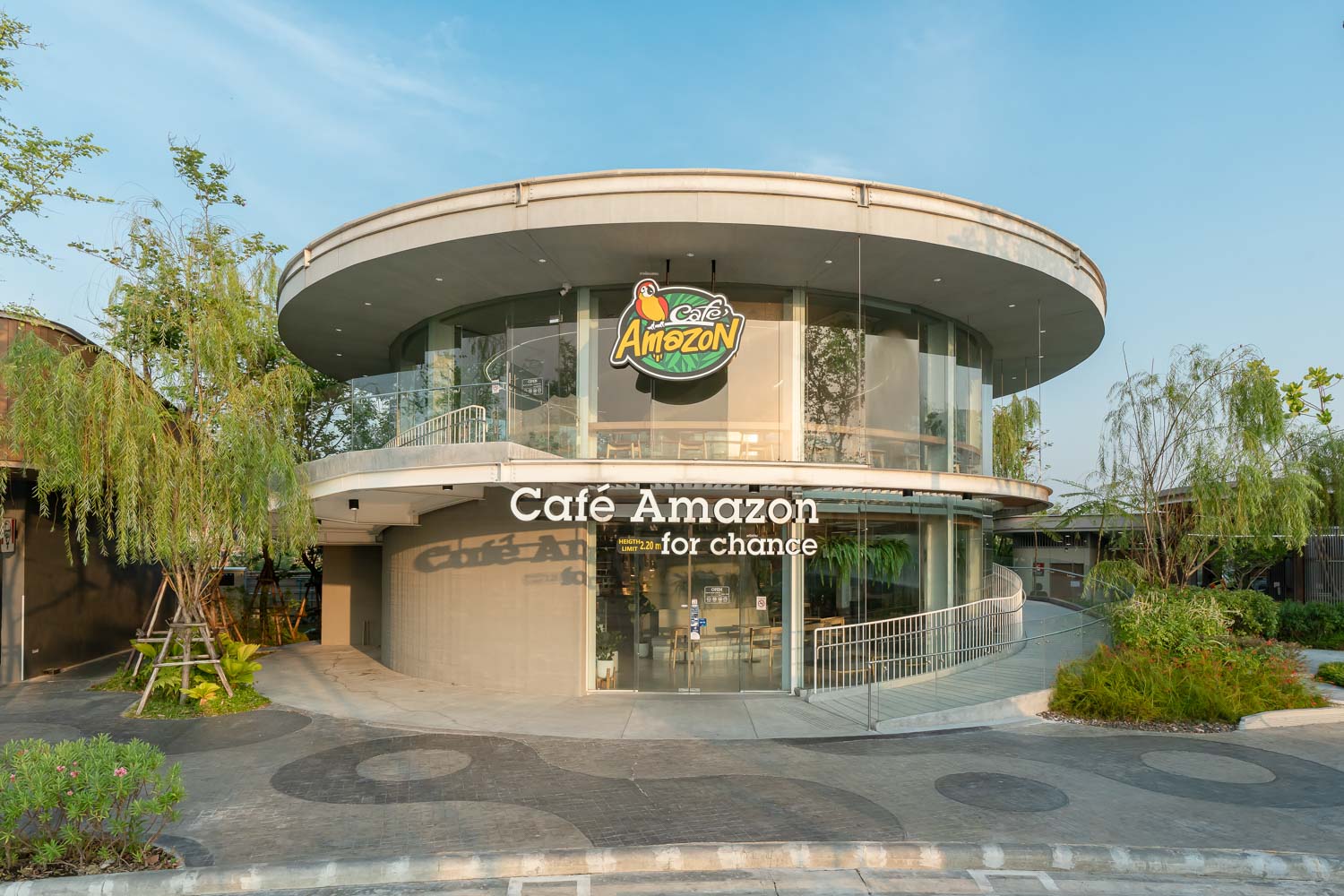
Café Amazon PTT Station Phutthamonthon Sai 3
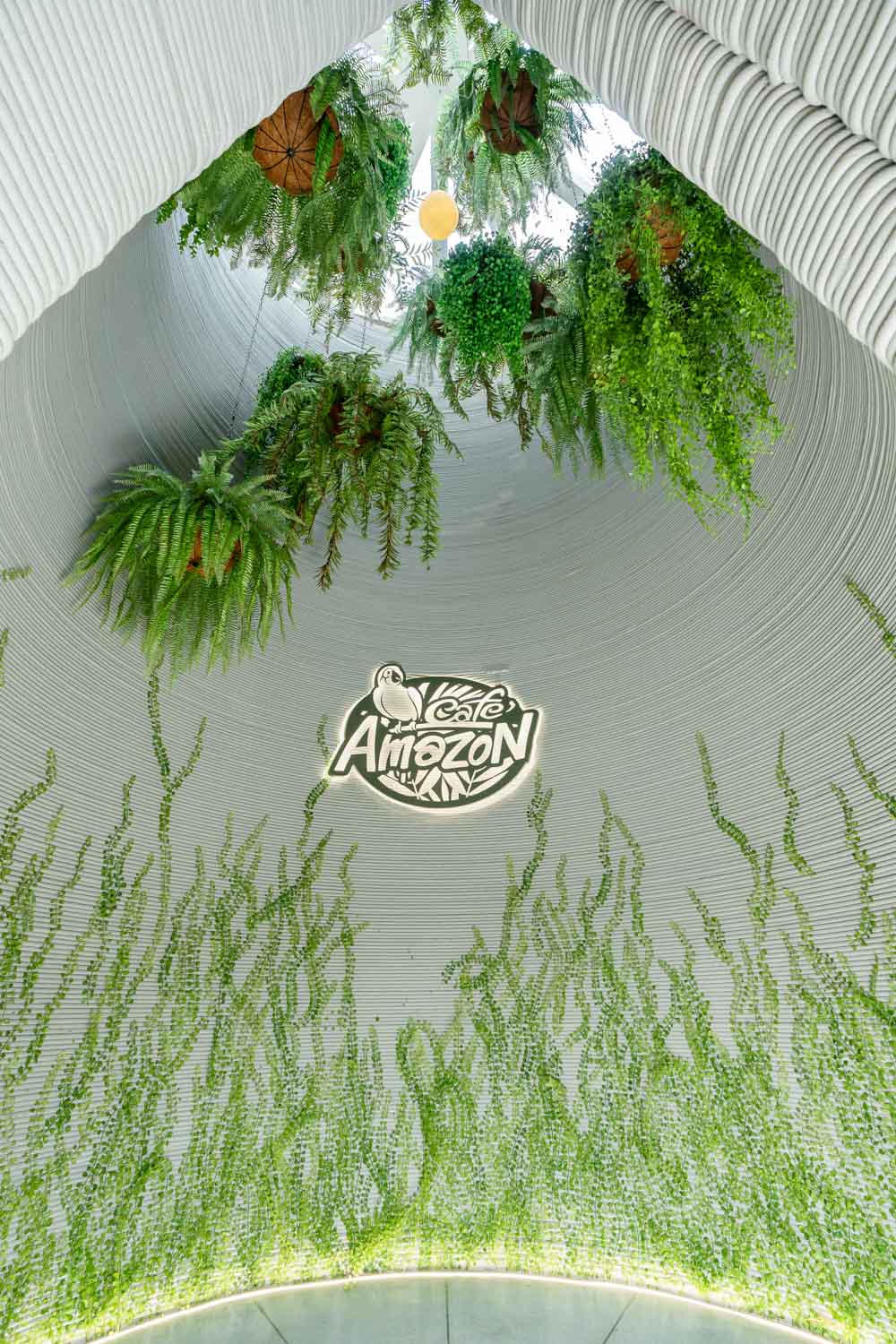
Café Amazon PTT Station Phutthamonthon Sai 3
Circular Economy
Café Amazon’s philosophy revolves around the concept of nature, which is expressed not only through the lush green landscape and surroundings, but also through a strong commitment to the environment as well as the efficient utilization of resources.
The PTT Station Samyan branch completed in 2019 introduced Café Amazon’s pilot project, which was developed based on the Circular Economy approach. The shop’s interior space was adorned with decorating items that were all made from up-cycled materials, aligning with the principles of the circular economy, which focuses on the efficient and constructive use of resources.
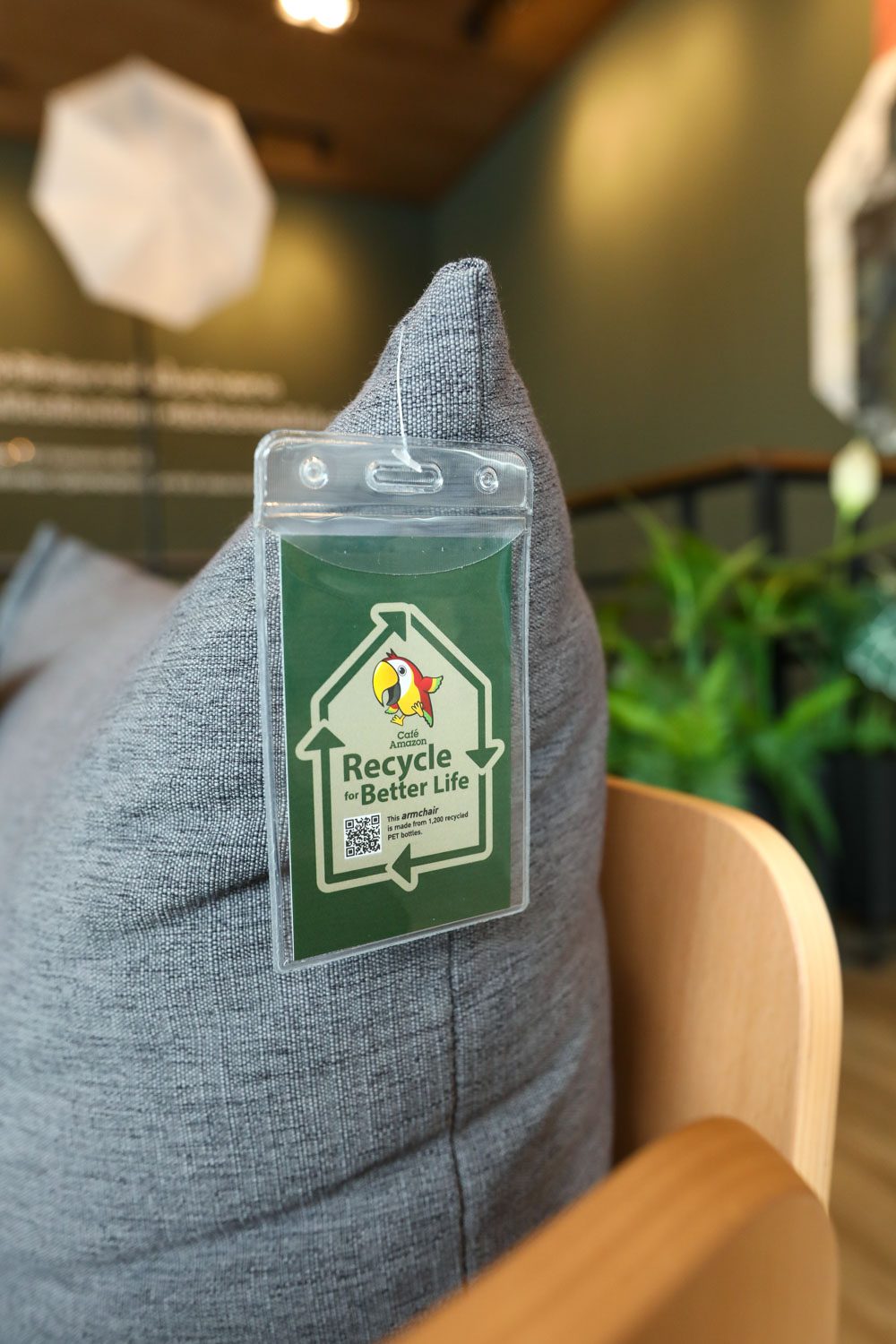
The café counter is situated in front of a feature wall that has been designed with a unique and eye-catching pattern. The material used consists of 7,200 compressed coffee bags that were shaped into individual pieces before they were assembled into the desired pattern. The parrot pattern on the feature wall of the second floor was constructed using a similar process, but with one key distinction: it was made from over 5,000 up-cycled polypropylene bottles. Not only that, the upholstery fabric used for the chairs and sofas is not made from ordinary fiber but from a fiber produced from PET bottles. These bottles were first liquified at high temperatures. The melted material was later transformed into threads of fiber.
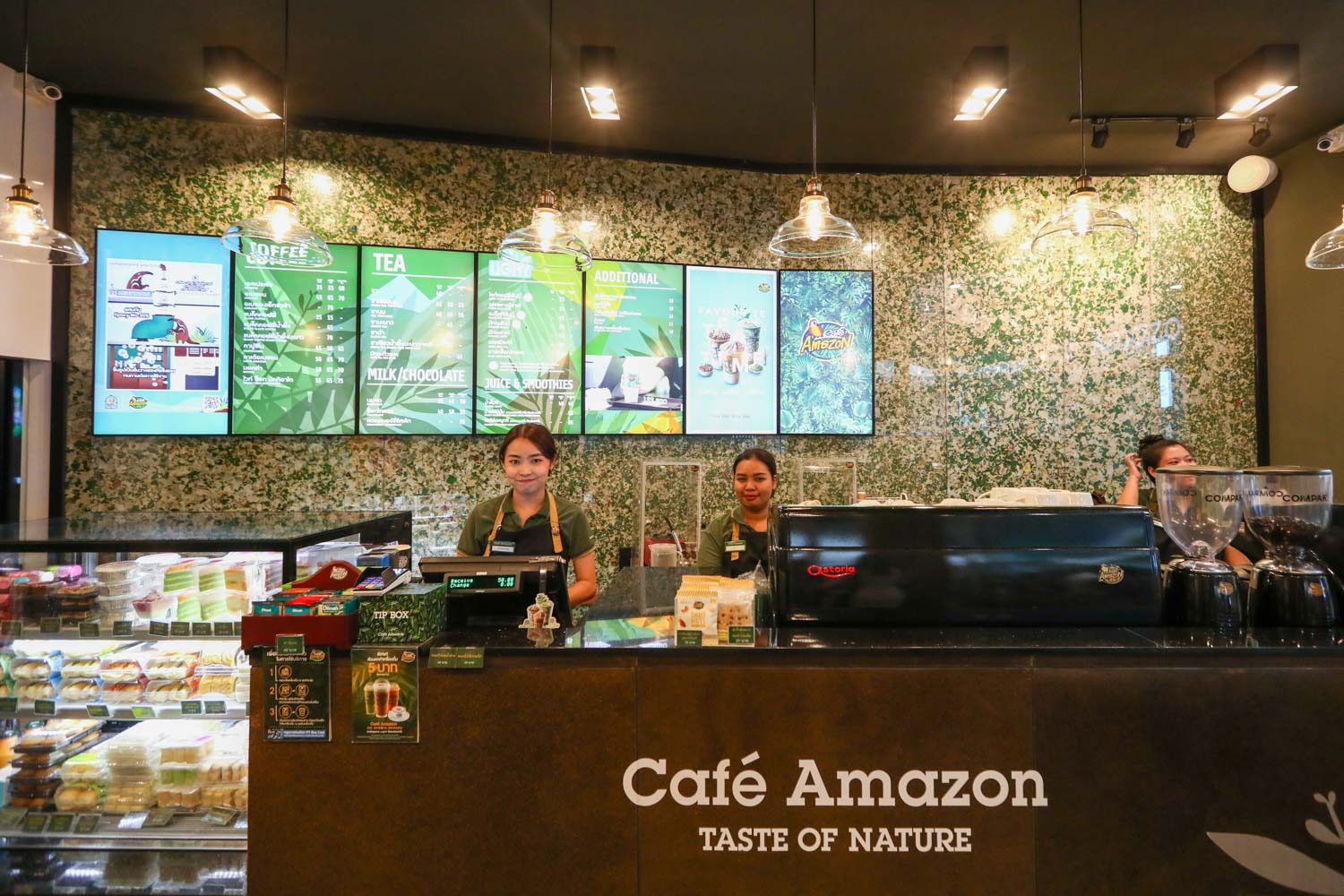
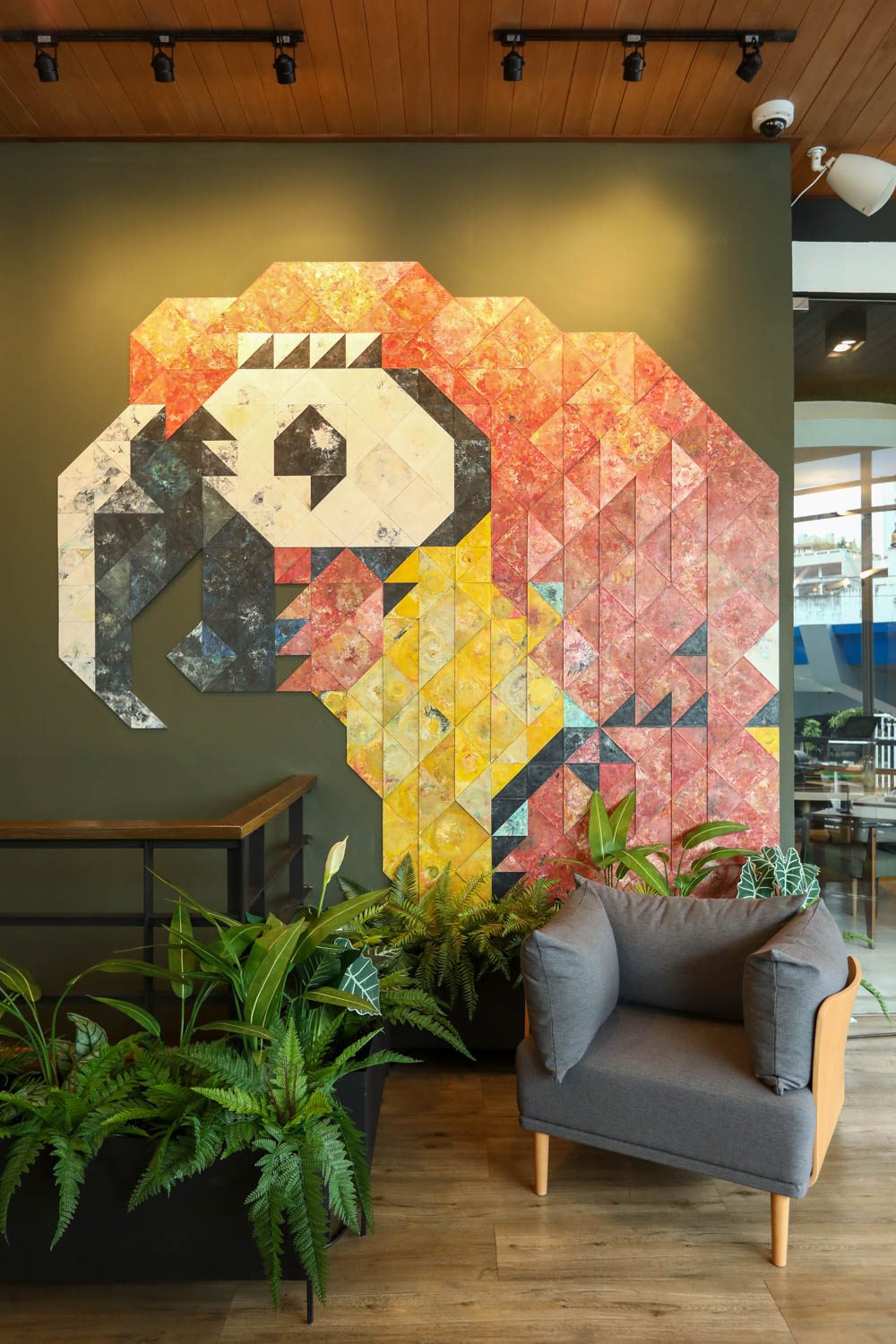
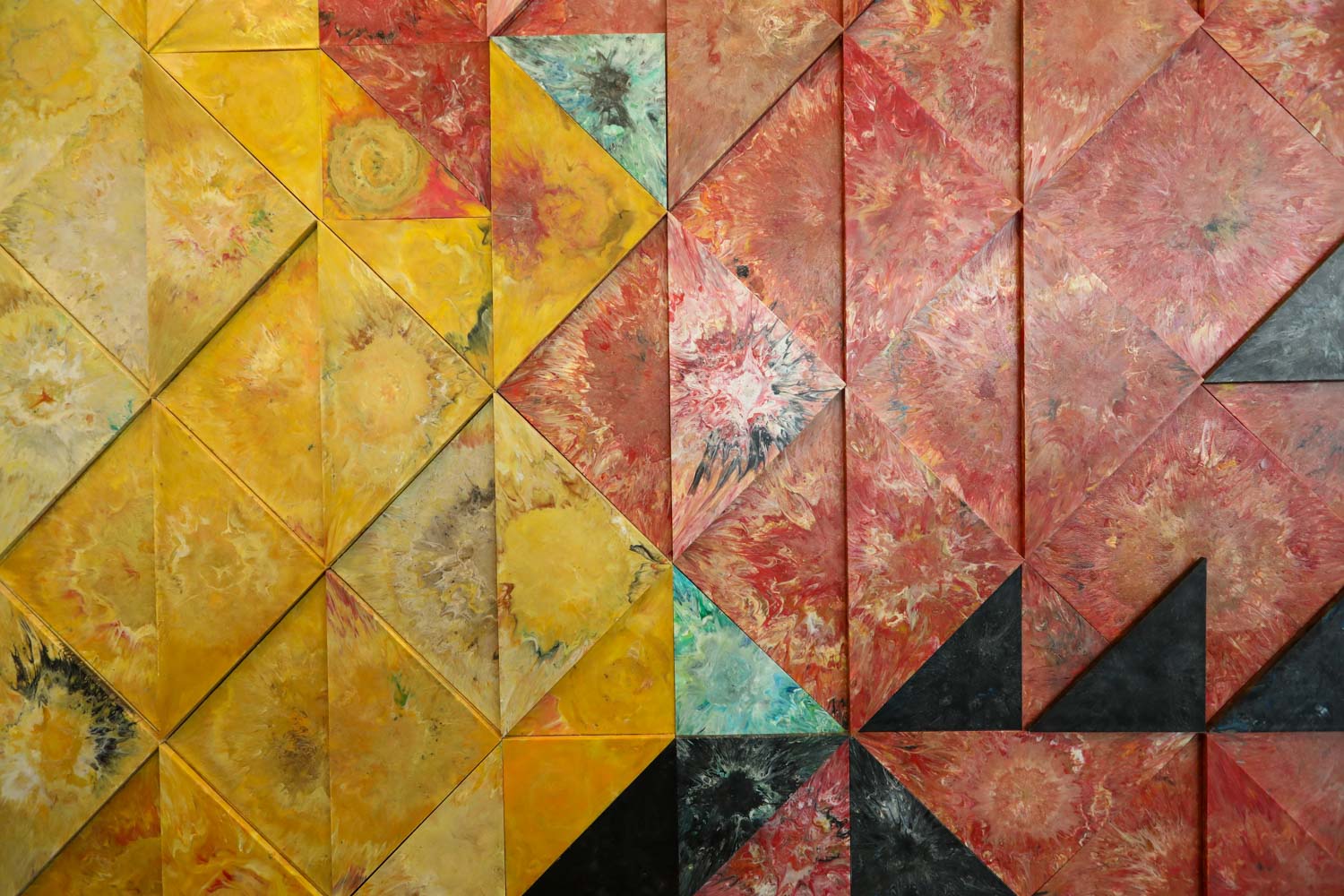
Café Amazon has adopted the efficient use of resources, one of the key principles of the circular economy, into the designs of its branches. This includes repurposing leftover materials to create furniture and decoration items, as well as using them as the material for the staff uniforms. Café Amazon currently classifies its shops into two main categories: Choice of Circular Economy and Circular Economy Plus+. The first group includes branches that integrate up-cycled and degradable materials into their design. Meanwhile, the Circular Economy Plus+ branches primarily use up-cycled materials and have designs that especially prioritize environmental consciousness, in addition to the products and services they offer.

In the upcoming episode, we will be taking you to visit two specifically designed Amazon Concept Stores under the Café Amazon brand.


